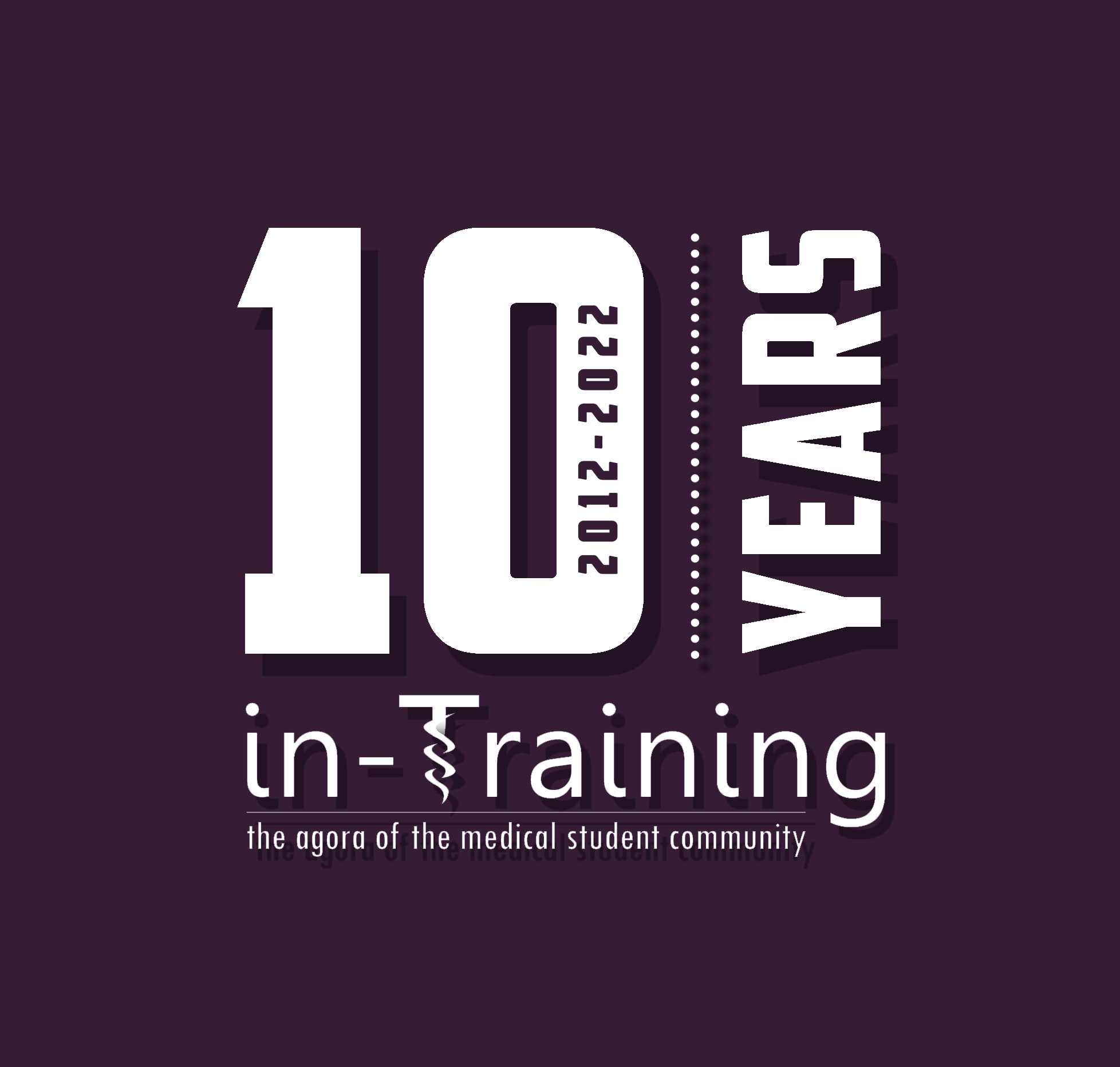This April marks the 10-year anniversary of the founding of in-Training, and we invited all members of the in-Training family to contribute articles and other artistic works to celebrate our first decade as the premier online peer-reviewed publication by and for the medical student community.
Jen Geller, Class of 2024 at Rutgers Robert Wood Johnson Medical School, contributes this article as an in-Training writer, editor and featured author in our print book in-Training: 2020 In Our Words.
To fully capture the breadth of medical humanities is simply not possible.
In fact, it is all too easy for the medical community to lack an appreciation for all of the ways that the humanities not only complement, but enhance medicine. Medicine — a field so biological and chemical — is often associated with far more rigidity than where the humanities permits the mind to go. However, whether in the forms of history, philosophy, theology, anthropology, psychology, sociology, literature, theater, cinema, music or the visual arts, there is a critical linkage between medicine and the humanities whose utility varies from physician to physician and from patient to patient.
If it were not for this linkage, why is it that we describe a career in medicine as a ‘practice’? We can practice a musical instrument. We can practice a sport. We can practice painting. What about medicine makes us practice it?
It is the acknowledgment of the humanity within each of us as medical students and physicians that makes medicine a practice. Like an art, we strive to improve each interaction, each procedure, and each day to better our patients. We must consider that no two patient encounters are precisely the same, and we have to adapt to and embrace those differences to optimize outcomes.
The fact that we are human ignites connection and emotion between patient and physician. Each child we give a sticker as they receive vaccines, each mother we comfort as their child is born, each patient whose hand we hold as they pass on. Suppose we fail to acknowledge the shared humanity in each of us. In that case, we fail to provide for our patients what is genuinely needed, another human supporting them in their health care journey — someone who is in their corner and is practicing medicine to treat their condition and to treat them as a person.
By this time in medical school, I have already seen the spectrum of life. I have stood in the operating room as a child is born. I have stood in the trauma bay after lengthy attempts at chest compressions that result in time-of-death being called. My career is just beginning. The range of emotions from excitement and pride to sadness and pain are integral parts of this career, as we are humans who will feel just as much as patients do.
The medical humanities give us the ability to put those emotional pieces of medicine into words. It allows us to describe the interactions between patient and physician that break down the barrier that can exist between the physician and the patient if the care is seen solely as transactional. And when we share our experiences with others, we can learn the varying perspectives from which medicine is practiced. As a result, we can ask more questions, challenge practices, and derive creative solutions to the field’s most significant challenges.
Growing up as a competitive dancer, music and movement are an integral part of how I process my world. The style of music I listen to reflects the mood I am feeling or what is taking place in the world around me. Beginning medical school, I thought that that would be the extent of my integration of music and medicine. And indeed music has enhanced my patient encounters. I have spoken with patients who themselves are musicians and as a result we have made an instant bond. However, from the very first time I performed CPR in my hospital’s emergency department, the importance of rhythm in the treatment process became far apparent as well.
And of course writing is one of my most important outlets for processing this journey, and I am appreciative of the ways that I have been able to subsequently share just some of those thoughts with the world, such as through in-Training. As a medical student, writing has provided me the opportunity to reflect on each stage of the educational process. From my very first telehealth, OSCE to my first time shadowing after a year of the pandemic, journaling the growing process has allowed me to see how far I have come and where I can improve in the future.
Therefore, it is important that as providers, we do not see the value of the humanities strictly as a separate hobby from the work that is done each day. By intertwining music, writing, movement, and so much more with the work we do, it can better inform patient interactions and overall care. As I continue to proceed through my training, I not only look forward to continuing to incorporate the humanities as I have done this far, but look forward to further expanding ways I can use it to inform patient-centered care.


